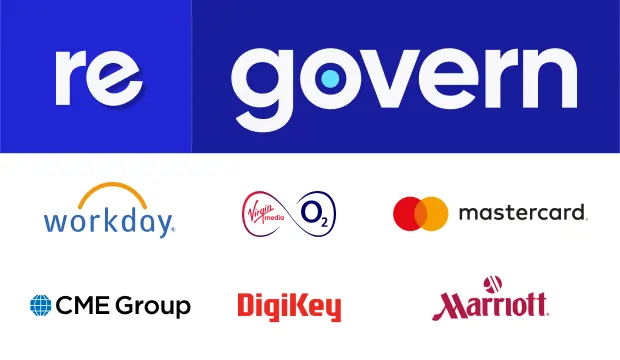Part 4: Team Dynamics
Building teams that outlast individuals
Make Others Successful
Your success as a leader is measured by one metric: how successful you make others.
The best leaders create leaders, not followers.
This isn't about being nice or popular. It's about multiplying impact. One great leader can do X. A great leader who develops ten leaders can do 10X.
Making others successful means:
• Giving away your best opportunities
• Teaching everything you know
• Celebrating their wins more than your own
• Pushing them beyond their comfort zones
• Sometimes letting them fail to learn
Story: The Manager Who Gave Away Her Promotion
A manager was offered a director role - her dream job. She recommended her top report instead. "He's ready," she said. "I'm needed here to develop the rest of the team."
Leadership was shocked but agreed. The new director thrived. The manager focused on developing three more high-performers.
Eighteen months later, she was promoted to VP - skipping director entirely. Why? She'd proven she could build leaders at scale. Her "sacrifice" had multiplied her impact and shown strategic thinking beyond her level.
Today, four VPs in our company were developed by her. Her legacy isn't her own success - it's the success she enabled in others.
Enable others' success by:
1. Giving credit generously: "The team did this" never "I did this"
2. Sharing knowledge freely: No hoarding for job security
3. Creating stretch opportunities: Push people beyond their own expectations
4. Providing air cover: Let them take risks knowing you've got their back
5. Celebrating their moves: Even when it means losing them
The best leaders create leaders, not followers.
This isn't about being nice or popular. It's about multiplying impact. One great leader can do X. A great leader who develops ten leaders can do 10X.
Making others successful means:
• Giving away your best opportunities
• Teaching everything you know
• Celebrating their wins more than your own
• Pushing them beyond their comfort zones
• Sometimes letting them fail to learn
Story: The Manager Who Gave Away Her Promotion
A manager was offered a director role - her dream job. She recommended her top report instead. "He's ready," she said. "I'm needed here to develop the rest of the team."
Leadership was shocked but agreed. The new director thrived. The manager focused on developing three more high-performers.
Eighteen months later, she was promoted to VP - skipping director entirely. Why? She'd proven she could build leaders at scale. Her "sacrifice" had multiplied her impact and shown strategic thinking beyond her level.
Today, four VPs in our company were developed by her. Her legacy isn't her own success - it's the success she enabled in others.
Enable others' success by:
1. Giving credit generously: "The team did this" never "I did this"
2. Sharing knowledge freely: No hoarding for job security
3. Creating stretch opportunities: Push people beyond their own expectations
4. Providing air cover: Let them take risks knowing you've got their back
5. Celebrating their moves: Even when it means losing them
Embrace Productive Conflict
Harmony is overrated. Productive conflict is underutilized.
The goal isn't to avoid conflict. It's to make conflict productive.
Teams that never disagree never innovate. They're either not thinking hard enough or not speaking honestly enough. Probably both.
Productive conflict is:
• About ideas, not personalities
• Focused on finding truth, not winning
• Direct but respectful
• In service of better outcomes
• Resolved with commitment
Story: The Meeting That Changed Everything
Our product and engineering teams were stuck in polite disagreement about priorities. Meetings were cordial but unproductive. Everyone was frustrated but no one would say it.
Finally, a junior PM exploded: "We're wasting time being nice while customers suffer!" The room froze. Then the dam broke. Years of suppressed disagreements poured out. Voices were raised. Whiteboards were attacked. Sacred cows were slaughtered.
Three hours later, exhausted but energized, we had a breakthrough plan. More importantly, we had permission to fight for what we believed.
That junior PM? She now runs product. Why? She showed us that caring enough to fight is better than being too polite to matter.
Foster productive conflict by:
1. Modelling disagreement: Challenge your own ideas publicly
2. Creating structured debates: Assign devil's advocates
3. Rewarding constructive pushback: Especially from junior members
4. Separating idea from identity: Attack positions, not people
5. Time-boxing conflicts: Debate hard, then decide and move
The goal isn't to avoid conflict. It's to make conflict productive.
Teams that never disagree never innovate. They're either not thinking hard enough or not speaking honestly enough. Probably both.
Productive conflict is:
• About ideas, not personalities
• Focused on finding truth, not winning
• Direct but respectful
• In service of better outcomes
• Resolved with commitment
Story: The Meeting That Changed Everything
Our product and engineering teams were stuck in polite disagreement about priorities. Meetings were cordial but unproductive. Everyone was frustrated but no one would say it.
Finally, a junior PM exploded: "We're wasting time being nice while customers suffer!" The room froze. Then the dam broke. Years of suppressed disagreements poured out. Voices were raised. Whiteboards were attacked. Sacred cows were slaughtered.
Three hours later, exhausted but energized, we had a breakthrough plan. More importantly, we had permission to fight for what we believed.
That junior PM? She now runs product. Why? She showed us that caring enough to fight is better than being too polite to matter.
Foster productive conflict by:
1. Modelling disagreement: Challenge your own ideas publicly
2. Creating structured debates: Assign devil's advocates
3. Rewarding constructive pushback: Especially from junior members
4. Separating idea from identity: Attack positions, not people
5. Time-boxing conflicts: Debate hard, then decide and move
Default to Transparency
Information is power. At Atlan, we distribute it widely.
When in doubt, share. When certain, share more.
Most companies restrict information. We believe the opposite: people make better decisions with more context. Trust people with the truth.
Transparency at Atlan means:
• Financial metrics are open to all
• Strategic discussions happen in public forums
• Failures are documented and shared
• Compensation philosophy is explicit
• Decision-making processes are visible
Story: The All-Hands That Saved Us
We lost our biggest customer. 40% of revenue. Most companies would manage the message, control the narrative, limit who knew.
We called an emergency all-hands. Shared everything: the numbers, the reasons, the implications. No sugar-coating. People were shocked, scared, but also energized.
What happened next was magical. Ideas poured in. Engineers proposed product pivots. Sales shared leads they'd been nurturing. Marketing suggested new segments. Customer success identified upsell opportunities.
Within 90 days, we'd not only replaced the revenue but exceeded it. Why? Because 300 minds solving a problem beats 5 executives managing a crisis.
Practice radical transparency by:
1. Sharing bad news immediately: The coverup is worse than the crime
2. Opening up discussions: Let people into the messy middle
3. Documenting decisions: Not just what, but why and how
4. Admitting uncertainty: "We don't know yet" is a valid answer
5. Creating open forums: Where any question can be asked
When in doubt, share. When certain, share more.
Most companies restrict information. We believe the opposite: people make better decisions with more context. Trust people with the truth.
Transparency at Atlan means:
• Financial metrics are open to all
• Strategic discussions happen in public forums
• Failures are documented and shared
• Compensation philosophy is explicit
• Decision-making processes are visible
Story: The All-Hands That Saved Us
We lost our biggest customer. 40% of revenue. Most companies would manage the message, control the narrative, limit who knew.
We called an emergency all-hands. Shared everything: the numbers, the reasons, the implications. No sugar-coating. People were shocked, scared, but also energized.
What happened next was magical. Ideas poured in. Engineers proposed product pivots. Sales shared leads they'd been nurturing. Marketing suggested new segments. Customer success identified upsell opportunities.
Within 90 days, we'd not only replaced the revenue but exceeded it. Why? Because 300 minds solving a problem beats 5 executives managing a crisis.
Practice radical transparency by:
1. Sharing bad news immediately: The coverup is worse than the crime
2. Opening up discussions: Let people into the messy middle
3. Documenting decisions: Not just what, but why and how
4. Admitting uncertainty: "We don't know yet" is a valid answer
5. Creating open forums: Where any question can be asked




















